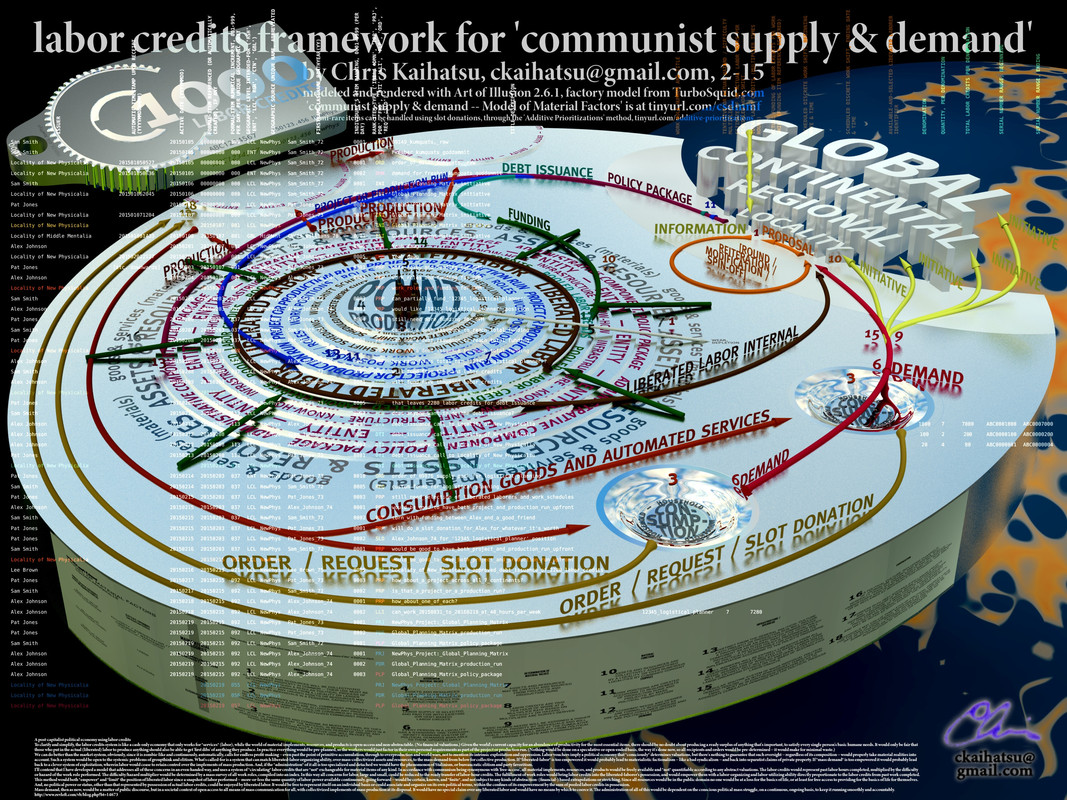- 07 Jul 2022 01:19
#15237312
Can black markets lead to a libertarian society?
According to agorists, interactions in black markets and grey markets can lay the groundwork for a nonviolent revolution against the present-day administrative state.
Agorism refers to a political philosophy that advocates for the use of counter-economics and similar ideas to create a libertarian society based on voluntary exchanges and associations.
The Etymology and Origins of Agorism
American libertarian philosopher Samuel Edward Konkin III coined the term agorism. To understand the principles that define agorism, we must look towards the ancients.
The word is derived from the Ancient Greek word (Ancient Greek: ἀγoρά), which refers to an open space where people can assemble and engage in commerce at in a polis— the Ancient Greek word for city-state (πόλις).
Konkin admired free markets and was part of the budding libertarian movement of the 1970s. His sympathies for libertarianism and anarchism made him a natural opponent of the modern-day state. SEK3 was particularly inspired by the works of the Ausrian School economist Ludwig von Mises and his acolytes who pushed for free markets.
The Debates Within the Libertarian Movement on Strategy
In addition to creating a political movement, Konkin gained fame for coining the term “minarchism”, which refers to a form of libertarianism that advocates for a minimal state.
Konkin was functionally an anarchist in his approach to the state. He viewed the state as an immoral entity that not only stifled economic progress but also transgressed on basic human liberties.
In the libertarian movement’s embryonic stage, there were constant debates about how liberty should be ultimately secured. Some libertarian figures advocated for traditional political methods to advance these ideas. The Libertarian Party was viewed as the primary vehicle for effecting change in the traditional political sphere.
There were other libertarians who agreed that the political route was the only way for their ideas to become politically relevant. But they held one caveat: Libertarians should run in the Republican Party. They reasoned that the GOP had libertarian factions within it and a mainstream party with its resources could propel those ideas to new heights.
Others focused on educational means of spreading their message through think tanks, educational institutions, and general culture. Certain schools of libertarianism inspired by Friedrich A. Hayek’s Intellectuals and Socialism, firmly believed that the diffusion of ideas is paramount towards generating change.
Why Ideological Splits Still Matter
There were obvious ideological splits among libertarians as well. There were minarchists, who believed in a minimal state, and the anarchists, who opposed the concept of a state. The latter were more averse to traditional activism, while the former was not afraid to participate in party politics and take part in mainstream academia.
Anti-state individuals have been allured by the unique nature of agorism. What excited them about this free-market philosophy was how it offered a unique opportunity for them to put their principles in action. By carrying the agorist flag, these individuals see market interactions as vehicles of societal liberation from state coercion
The Konkin vs. Rothbard Debate on How to Achieve Liberty
Konkin rose to prominence around the same time as Murray Rothbard, the leading exponent of anarcho-capitalism of that time, became the intellectual pillar for libertarianism.
Apart from his radicalism, Rothbard was known for his political eccentricism. Rothbard was willing to forge alliances with both the Old Right and the New Left. The free-market stalwart was a political junkie through and through. He was fascinated by the intrigue of 20th century politics in America.
Rothbard advocated for conventional political action to advance libertarian ideas. He was initially a strong supporter of the Libertarian Party and saw political parties as vehicles to realize substantial political reforms in the United States. Konkin, by contrast, was not a fan of party politics.
The founder of agorism was of the view that playing in the direct politics game only perpetuates statism. Konkin’s political philosophy focused on direct action in the real world and avoided the political arena altogether.
Continue reading Agorism: The Revolutionary Philosophy of Counter-Economics on Libertas Bella
According to agorists, interactions in black markets and grey markets can lay the groundwork for a nonviolent revolution against the present-day administrative state.
Agorism refers to a political philosophy that advocates for the use of counter-economics and similar ideas to create a libertarian society based on voluntary exchanges and associations.
The Etymology and Origins of Agorism
American libertarian philosopher Samuel Edward Konkin III coined the term agorism. To understand the principles that define agorism, we must look towards the ancients.
The word is derived from the Ancient Greek word (Ancient Greek: ἀγoρά), which refers to an open space where people can assemble and engage in commerce at in a polis— the Ancient Greek word for city-state (πόλις).
Konkin admired free markets and was part of the budding libertarian movement of the 1970s. His sympathies for libertarianism and anarchism made him a natural opponent of the modern-day state. SEK3 was particularly inspired by the works of the Ausrian School economist Ludwig von Mises and his acolytes who pushed for free markets.
The Debates Within the Libertarian Movement on Strategy
In addition to creating a political movement, Konkin gained fame for coining the term “minarchism”, which refers to a form of libertarianism that advocates for a minimal state.
Konkin was functionally an anarchist in his approach to the state. He viewed the state as an immoral entity that not only stifled economic progress but also transgressed on basic human liberties.
In the libertarian movement’s embryonic stage, there were constant debates about how liberty should be ultimately secured. Some libertarian figures advocated for traditional political methods to advance these ideas. The Libertarian Party was viewed as the primary vehicle for effecting change in the traditional political sphere.
There were other libertarians who agreed that the political route was the only way for their ideas to become politically relevant. But they held one caveat: Libertarians should run in the Republican Party. They reasoned that the GOP had libertarian factions within it and a mainstream party with its resources could propel those ideas to new heights.
Others focused on educational means of spreading their message through think tanks, educational institutions, and general culture. Certain schools of libertarianism inspired by Friedrich A. Hayek’s Intellectuals and Socialism, firmly believed that the diffusion of ideas is paramount towards generating change.
Why Ideological Splits Still Matter
There were obvious ideological splits among libertarians as well. There were minarchists, who believed in a minimal state, and the anarchists, who opposed the concept of a state. The latter were more averse to traditional activism, while the former was not afraid to participate in party politics and take part in mainstream academia.
Anti-state individuals have been allured by the unique nature of agorism. What excited them about this free-market philosophy was how it offered a unique opportunity for them to put their principles in action. By carrying the agorist flag, these individuals see market interactions as vehicles of societal liberation from state coercion
The Konkin vs. Rothbard Debate on How to Achieve Liberty
Konkin rose to prominence around the same time as Murray Rothbard, the leading exponent of anarcho-capitalism of that time, became the intellectual pillar for libertarianism.
Apart from his radicalism, Rothbard was known for his political eccentricism. Rothbard was willing to forge alliances with both the Old Right and the New Left. The free-market stalwart was a political junkie through and through. He was fascinated by the intrigue of 20th century politics in America.
Rothbard advocated for conventional political action to advance libertarian ideas. He was initially a strong supporter of the Libertarian Party and saw political parties as vehicles to realize substantial political reforms in the United States. Konkin, by contrast, was not a fan of party politics.
The founder of agorism was of the view that playing in the direct politics game only perpetuates statism. Konkin’s political philosophy focused on direct action in the real world and avoided the political arena altogether.
Continue reading Agorism: The Revolutionary Philosophy of Counter-Economics on Libertas Bella
“A society that puts equality before freedom will get neither. A society that puts freedom before equality will get a high degree of both.”
– Milton Friedman
– Milton Friedman












 - By Pants-of-dog
- By Pants-of-dog - By Tainari88
- By Tainari88